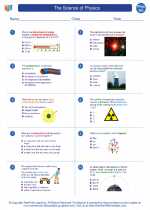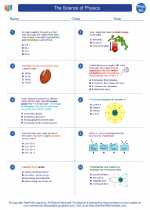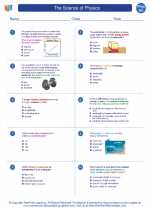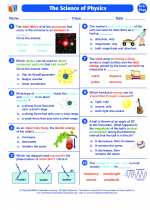Change in Physics
In physics, change refers to the transformation of a physical quantity from one state to another. This can include changes in position, velocity, acceleration, temperature, and many other properties of objects and systems. Understanding and analyzing change is crucial in physics, as it allows us to describe and predict the behavior of objects and systems in the natural world.
Types of Change
There are several types of change that are important in physics:
- Linear Change: This refers to a constant rate of change over time, such as an object moving with a constant velocity.
- Non-linear Change: This type of change involves a non-constant rate of change, such as an object accelerating or decelerating.
- Change in State: This refers to changes in the physical state of a substance, such as the transition from solid to liquid or from liquid to gas.
- Thermal Change: This includes changes in temperature and heat transfer within a system.
Key Concepts
When studying change in physics, it's important to understand the following key concepts:
- Rate of Change: This measures how a quantity changes over time, and can be expressed as a derivative in calculus.
- Conservation Laws: These laws describe how certain quantities, such as energy and momentum, remain constant in a closed system despite changes in other variables.
- Equilibrium: When a system is in equilibrium, there is no net change in its properties over time.
- Force and Motion: Understanding how forces cause changes in the motion of objects is a fundamental aspect of change in physics.
Study Guide
When studying the topic of change in physics, here are some key points to focus on:
- Understand the difference between scalar and vector quantities, and how they relate to changes in physical properties.
- Practice using equations of motion to analyze and predict changes in an object's position, velocity, and acceleration.
- Learn about the laws of thermodynamics and how they govern changes in energy and heat transfer.
- Explore real-world examples of change, such as the motion of projectiles, the behavior of gases, and the transfer of heat in everyday objects.
- Make connections between the concept of change and other topics in physics, such as mechanics, thermodynamics, and electromagnetism.
By mastering the concept of change in physics, you'll develop a deeper understanding of the fundamental principles that govern the behavior of the physical world.
[Change] Related Worksheets and Study Guides:
.◂Physics Worksheets and Study Guides High School. The Science of Physics

 Worksheet/Answer key
Worksheet/Answer key
 Worksheet/Answer key
Worksheet/Answer key
 Worksheet/Answer key
Worksheet/Answer key
